Knowledge is powerless until it is shared.
Everyone loves the shiny side of developing new products. The innovation. The speed to market. The “sexy” features that light up roadmaps and wow leadership. But how often does serviceability get the same spotlight?
Read
Configuration Management isn’t a department. It’s a discipline that needs to be integrated throughout your organization.
Read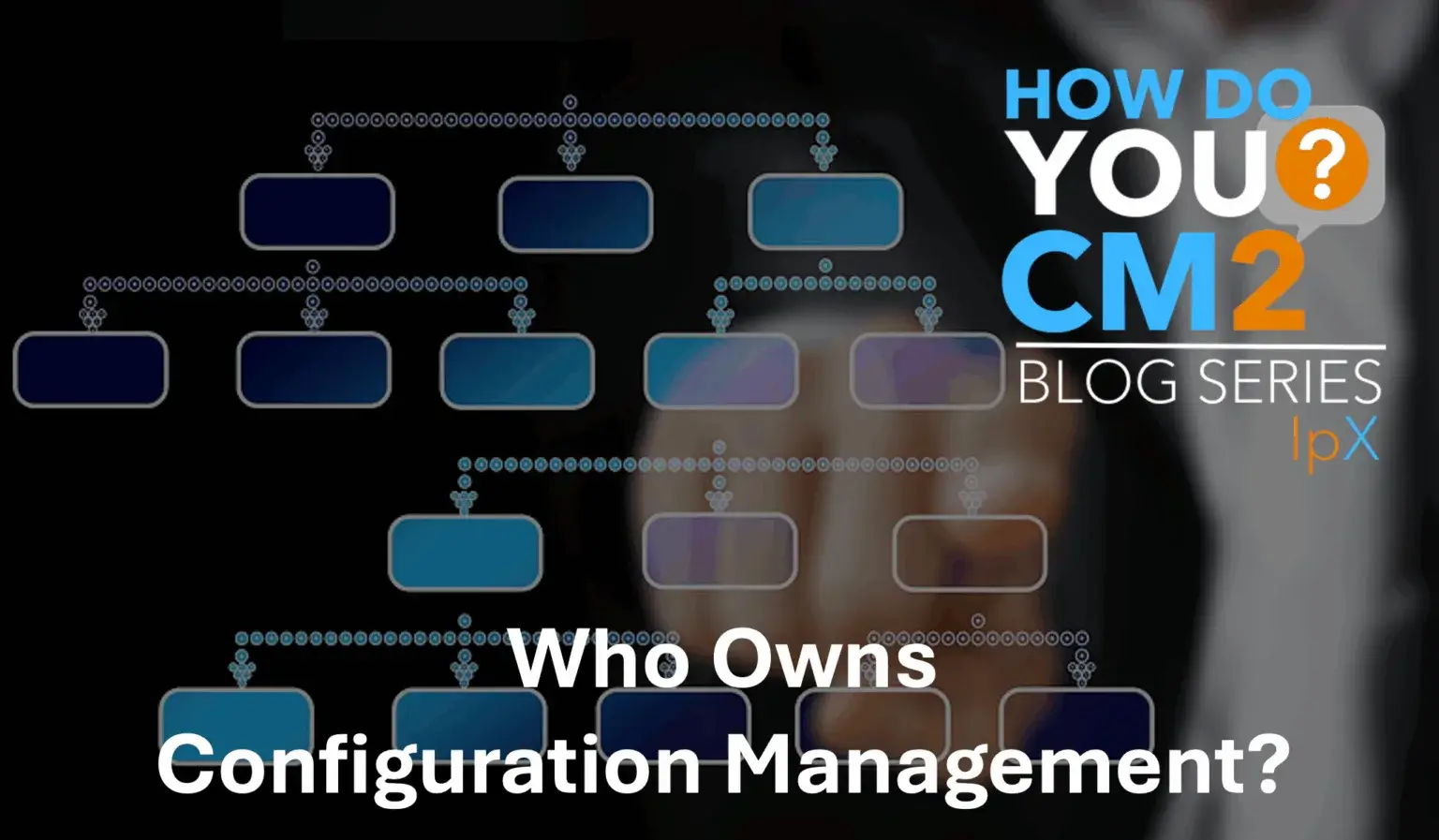
An important concept to track the maturation of your designs in New Product Introductions is the design maturity of a dataset. 𝗪𝗵𝗮𝘁 𝗶𝘀 𝗮 𝙙𝙖𝙩𝙖𝙨𝙚𝙩 𝙙𝙚𝙨𝙞𝙜𝙣 𝙢𝙖𝙩𝙪𝙧𝙞𝙩𝙮? It’s not a workflow status. It’s an indicator of what you can reliably do downstream with your dataset.
Read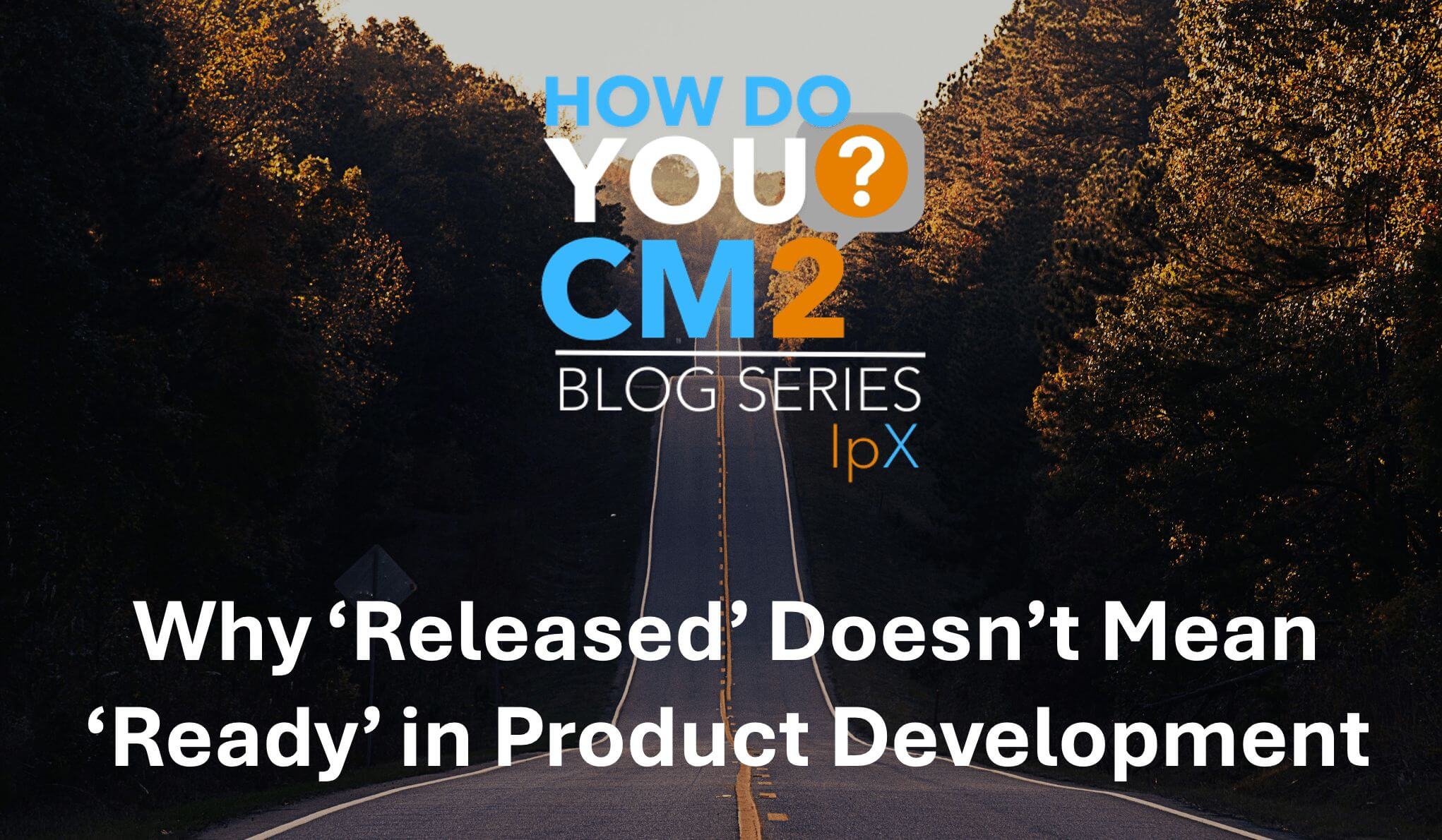
When do you start change control in new product introductions? This single decision shapes the DNA of your product lifecycle. And yet, many organizations still treat it as an afterthought.
Read
When organizations talk about going model-based, most think about tools, data structures, and integration. But here’s another real roadblock: tribal knowledge.
Read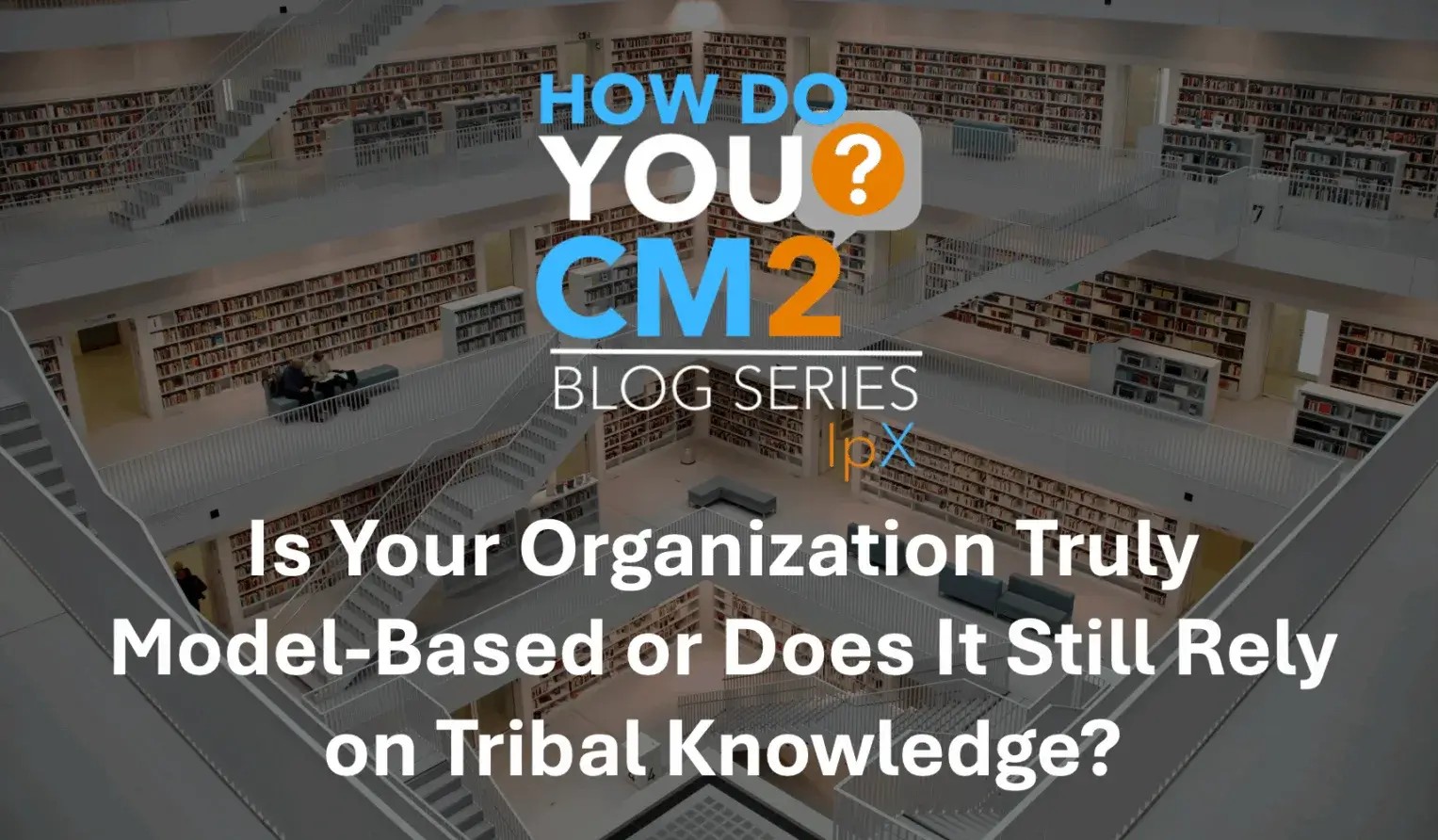
A data model is a representation of the way data is defined and structured in a database. The ability to change your product documentation efficiently highly depends on the data models of the tools you use.
Read
As global trade tensions escalate and raw material costs surge, internal scrap is no longer a technical nuisance—it’s a strategic liability. Every rejected part, outdated drawing, or excess material represents premium-priced waste that never reaches the customer. And when tariffs inflate input costs, that waste becomes a silent surcharge—draining margins and amplifying risk.
Read
Every change process is fundamentally the same. You have a Request phase and an Implementation phase. It does not matter if you change a product or an organization; the basic steps are the same.
Read
Tariffs have become a powerful force reshaping U.S. manufacturing—not just in terms of costs, but in how goods move, where parts are sourced, and how supply chains are managed.
Read
This statement almost always sparks debate, confusion, or even pushback. And that’s good because challenging assumptions is how organizations evolve from a document-centric past to a truly model-based future.
Read
The CM2 Baseline is the crystal ball that allows you to see past, present, and future. It’s the gateway to all the single sources of truth. You can see how it was connected, how it is connected, and how it will be connected.
Read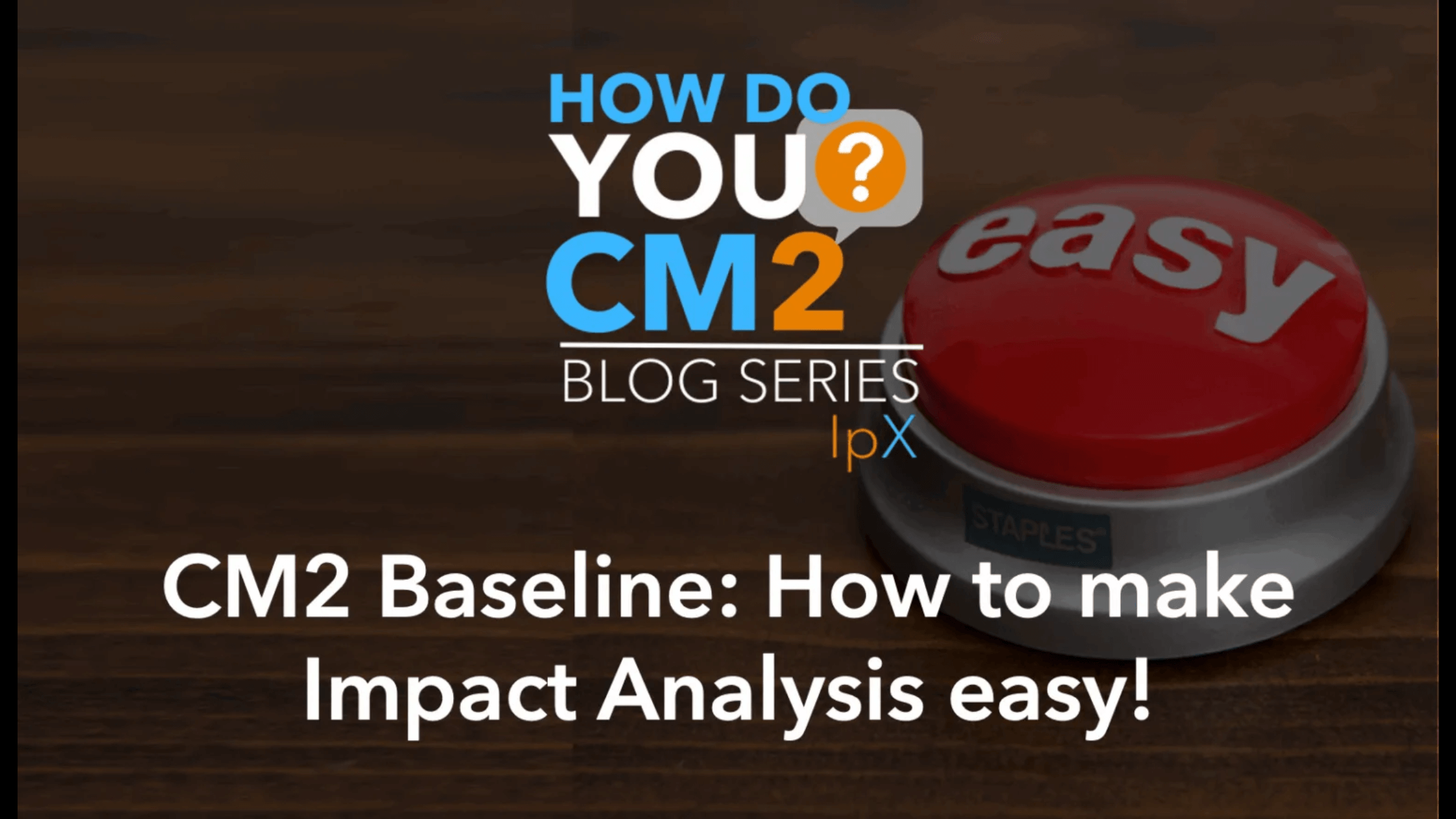
It’s a familiar scenario, isn’t it? We’re all wired to solve problems. We identify an issue, envision a solution, and our brains immediately jump to implementation. We tend to gravitate towards solutions and implementing solutions, but this tendency causes us to forget or skip impact analysis of the proposed solution. This isn’t just a minor oversight; it’s a blind spot that can lead to costly rework, unforeseen dependencies, and a cascading effect of issues down the line. Especially if you know that:
Read.png)
What do you call a change to a product? And no, this is not the start of a joke; it is a serious question. Do you call it an Engineering Change? If so, please consider stopping doing that.
Read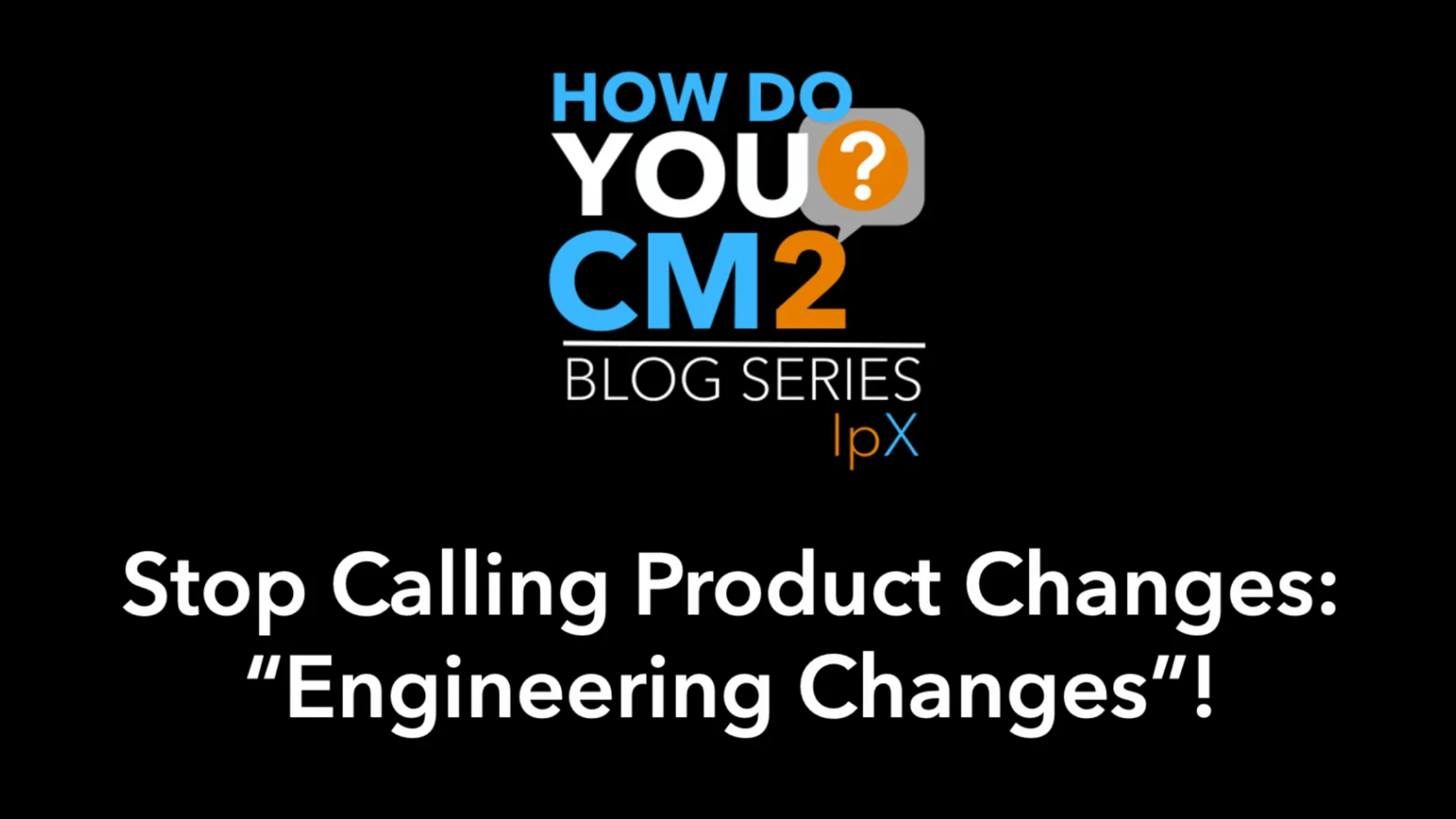
Change is the heartbeat of innovation. Yet, in many enterprises, change is still treated as a reactive and siloed activity. Organizations spend billions annually managing change, but too often, that effort leads to inefficiency, rework, and missed opportunities. What if the change process itself could become a strategic enabler of innovation and value creation?
Read.png)
Building on our last post about how CM2 isn’t just for engineers. I want to share one of the biggest game-changers I’ve seen in making that appearingly magical cross-functional collaboration happen: it’s all about having an 𝗲𝗻𝘁𝗲𝗿𝗽𝗿𝗶𝘀𝗲 𝗰𝗹𝗼𝘀𝗲𝗱-𝗹𝗼𝗼𝗽 𝗰𝗵𝗮𝗻𝗴𝗲 𝗽𝗿𝗼𝗰𝗲𝘀𝘀.
Read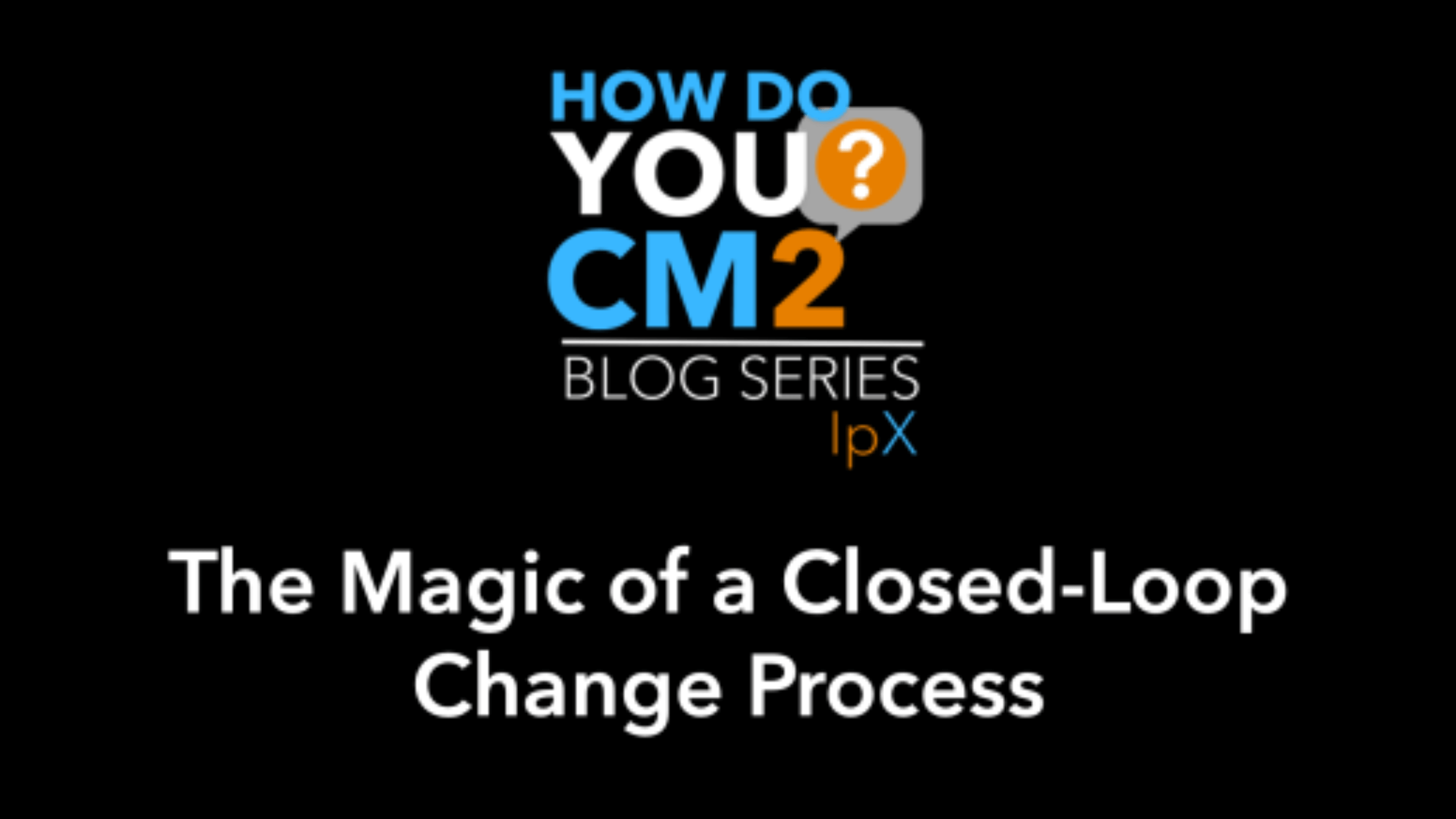
Alright, let’s bust a persistent myth that really holds Configuration Management (CM) and more specifically CM2 back: the fact that it’s an engineering activity. Yes, engineers are essential. But confining CM to their world is like owning a Ferrari and never leaving the driveway.
Read
When you hear “Configuration Management,” do you picture paperwork mountains and approval bottlenecks? That’s only the surface. CM2 is the system-wide rhythm behind organizational clarity and lifecycle control. It’s not just tracking what changed—it’s enabling speed without sacrificing consistency. For your products and your organization.
Read
Be honest with yourself and your organization: Does your organization rely on firefighting and corrective actions today? Do you have many inefficiencies that negatively impact the innovative ability of your organization? Do you have issues with delivering quality products and struggle to keep customer trust?
Read
Regulatory compliance is not the goal—it’s just the starting point. True operational excellence happens when organizations move beyond compliance and into competence. That’s where CM2 thrives.
Read
Forget the buzzwords. "Digital transformation" has been tossed around so much it’s lost all meaning—just another empty promise in a sea of tech jargon. Businesses are drowning in a DRIP of tools, platforms, and solutions that claim to fix everything. But the reality? Technology alone won’t save you.
Read
In today’s fast-paced, product-driven industries, businesses must manage complex workflows and a wide array of data to stay competitive. Did you know that companies implementing effective PLM strategies can reduce time-to-market by up to 50%?
Read
Organizations aggressively driving improvement through a portfolio of change initiatives recognize the power and the dangers of inertia.
Read.png)
Managing complex and high-impact changes effectively is far from simple. The Change Review Board (CRB) serves as a vital checkpoint, ensuring that proposed changes are carefully evaluated for their feasibility, risks, and alignment with strategic goals before moving forward.
Read
For small to medium businesses, failing to establish a solid foundation of effective and scalable processes from the start causes future headaches and costly mistakes for the future you. Poorly defined processes can lead to inefficiencies, bottlenecks, and a lack of agility, making it difficult to adapt to growth and market changes.
Read
Digital transformation has become a defining strategy for organizations aiming to thrive in a competitive, information-driven world. But behind the considerable glitz and buzz, failing to get the fundamentals right can be like a fumble on the goal line.
Read.png)
Determining if a Change Request is to be managed as a full or fast-track change is about making quality business decisions. It’s also about managing key stakeholders and engaging the right decision makers.
Read
Everyone is eager to understand how to implement AI into their organizations. Leadership demands we need AI to keep up with future trends. Between 50% and 60% of all organizations are using AI. This adoption rate has more than doubled since 2017. However, AI is not a magic wand that can instantly generate meaningful output. Instead, it relies on the information provided to deliver data-driven insights.
Read.png)
As of January 2025, it’s clear that no PDM (Product Data Management) or PLM (Product Lifecycle Management) software has yet been developed to manage and release datasets independently of item revisions. Let’s explore why these systems are still structured around item revisions rather than enabling independent dataset lifecycle management.
Read
Navigating the complex environment of modern organizations, especially those with a rich history of acquisitions and entrenched legacy tools, presents significant challenges in managing data and processes effectively. This is where the CM2 methodology comes into play...
Read.png)
In today’s rapidly evolving business landscape, growing your career at pace requires continual learning, skills enhancement, and professional credentials that set you apart. For both business professionals and students preparing to enter the workforce, obtaining the right certifications and degrees can significantly boost career prospects and earning potential.
Read
Implementing enterprise software can be a powerful tool for streamlining workflows and boosting efficiency. However, neglecting to address underlying business process issues before diving into a software solution can backfire spectacularly.
Read
It is essential to understand that UX (user experience) in enterprise software is not solely defined by the software's out-of-the-box (OOTB) user interface (UI) or its inherent usability and complexity.
Read
IpX (The Institute for Process Excellence) has the blueprint for true continuous improvement that empowers an ecosystem of sustainable excellence, which in turn results in the perpetual success of your organization. This blog-post discusses an important aspect of that ecosystem.
Read
What is master data? Master data is the information that drives systems and ideally it is your single point of truth for connected systems. Teams must define that source of truth so that you can connect various systems to that information to simplify transactions for the user and ensure data integrity. This mapping of master data is called master data management. How well this is done can make a huge difference in the ease of work for employees and users.
Read
This will be a summary for this [Assembling the A-Team: Creating an Efficient and Effective Change & Configuration Management Process] Perspectives post that has just enough content to hook the reader and pull them into the full article.
Read
In today's fast-paced and interconnected world, organizations across industries face a growing challenge: maintaining safety, reliability, and process excellence amidst an epidemic of quality issues.
Read
In today's fast-paced and interconnected world, organizations across industries face a growing challenge: maintaining safety, reliability, and process excellence amidst an epidemic of quality issues.
Read
In recent years, the buzz around "digital transformation" has permeated the field of Product Lifecycle Management (PLM), promising revolutionary changes and efficiency gains.
Read
Product Lifecycle Management (PLM) is the strategic process of managing the complete journey of a product from initial ideation, development, service, and disposal.
Read
When I originally took my CM2-C certification, I was intending to learn the tidbits that would help me tactically improve the insufficient change management process at the company I worked for.
Read
Have you ever worked on one of those initiatives that you dreaded? Did you think to yourself “If I just wait this out, it will go away?"
Read
We like to keep score – it’s how we determine who’s winning. Without it, we couldn't be sure the New York Jets will continue to struggle, even with Aaron Rodgers.
Read
Oftentimes the most challenging part of implementing change is understanding the magnitude of change and configuration management and the value it brings to the organization.
Read
“One man’s trash is another man’s treasure” is a popular apothegm attributed to a chef and restauranteur, but its wisdom and truth are often highly applicable in business contexts.
Read
If water coolers (and their virtual equivalents) could rank order the conversations they hear, certainly a general category encompassing “throwing corporate processes under the bus” would appear in the top 3.
Read
In the product release process, appropriately balancing accelerating program schedules and process efficiency against assuring design robustness and manufacturing readiness has seldom been more challenging.
Read.png)
Tool providers intentionally develop their solutions to be flexible to suit the needs and wants of various organizations as much as possible with an out-of-the-box approach.
Read
We have all heard stories about tool implementation projects that endured unplanned problems, hidden costs and ultimately exceeded schedule and budget.
Read
Even though modern tool solutions are designed to be transparent and simple to use, due to the complexity of operations and the need for certain configuration and optimization, it is crucial to have a process expert on your team.
Read
Employees are often unintentionally incentivized to produce solutions that only address the symptoms of a problem, never to discover the root cause of the problem they are facing.
Read
Turnover - there are a lot of reasons for it: the economy, company-wide reduction in force, new opportunity, automation, the employee was a “bad hire” or missed performance expectations, perhaps the employee had a life change that forced them to make a choice between their job and their other responsibilities, the list goes on and on.
Read
Everyone has heard the expression “a picture is worth a thousand words.” Nowadays, with remote working on the rise, the need to effectively communicate visual product information is more crucial than ever.
Read
To further understand how Configuration Lifecycle Management can be applied across the enterprise and product lifecycle, let’s look behind the scenes at how CLM works.
Read
When people think of Configuration Management (CM) or Change Management, they often think of engineering design data. At IpX, we focus on elevating CM out of Engineering’s shadow and expand it across the enterprise.
Read
The industry is full of terms like Engineer-to-Order and Mass Customization [1]. These used to only apply to consumer products, but within the past several years there has been a noticeable change in customer expectations.
Read
COVID-19 has impacted nearly all global project timelines due to its effect on the global workforce. Organizations have had to think critically about more effective ways of working.
Read
Product Lifecycle Management (PLM), Configuration Lifecycle Management (CLM), and now Service Lifecycle Management (SLM)? You bet!
Read
To ensure continued success, an enterprise must focus on improving its products and/or services as well as modernizing its configuration delivery system throughout the ecosystem. A world-class enterprise not only defines and documents its products and/or services, but its configuration delivery system as well.
Read
True North is more than IpX’s model; it's our DNA. It embodies the spirit of our message and our moral compass.
Read
